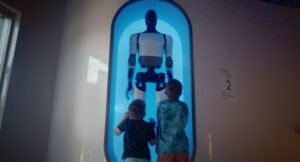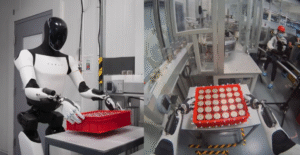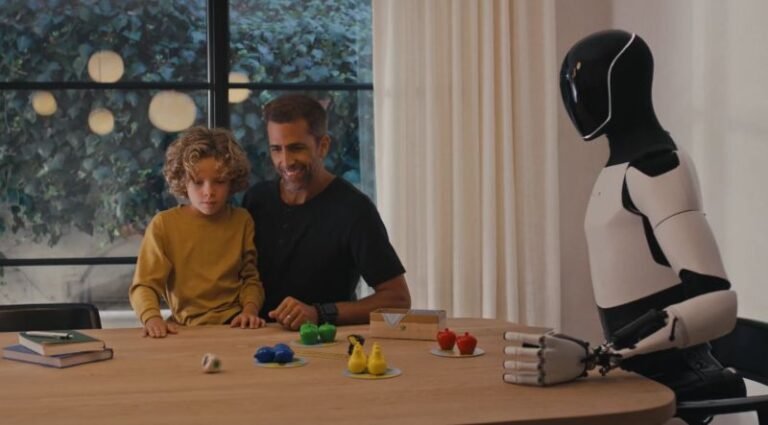Tesla CEO Elon Musk has declared that nearly 80% of Tesla’s future value will be derived from its humanoid robot, Optimus. The statement underscores Musk’s conviction that humanoid robotics will transform industries and redefine the company’s trajectory beyond electric vehicles.
Tesla introduced Optimus as a next-generation humanoid robot designed to perform tasks ranging from manufacturing support to household chores. Musk has repeatedly emphasized that the humanoid market could become larger than Tesla’s core automotive business, pointing to its scalability across global industries.
a next-generation humanoid robot designed to perform tasks ranging from manufacturing support to household chores. Musk has repeatedly emphasized that the humanoid market could become larger than Tesla’s core automotive business, pointing to its scalability across global industries.
Operational Details
The Optimus program leverages Tesla’s expertise in AI, robotics, and manufacturing automation. The robot is built on Tesla’s neural network technology, already powering autonomous vehicles, allowing for advanced decision-making and task execution. Production scalability remains a key focus as the company integrates Optimus into its factories before wider deployment.

Economic Impact
If Musk’s projections hold, Optimus could contribute trillions in market value over time. Humanoids are expected to reduce labor costs, optimize productivity, and fill workforce gaps in sectors such as healthcare, logistics, and manufacturing. The market’s long-term economic impact could rival — or surpass — the EV revolution.
Strategic Significance
Tesla’s focus on Optimus reflects a wider trend: the humanoid robotics industry is gaining global traction, with startups and major corporations investing heavily in motion control, AI, and human-machine interaction. As Musk positions Tesla at the forefront, this signals heightened competition and innovation in a sector poised to reshape human labor and industrial operations.



 Share your work with UNI Network Magazine. Upload your PDF below.
Share your work with UNI Network Magazine. Upload your PDF below.